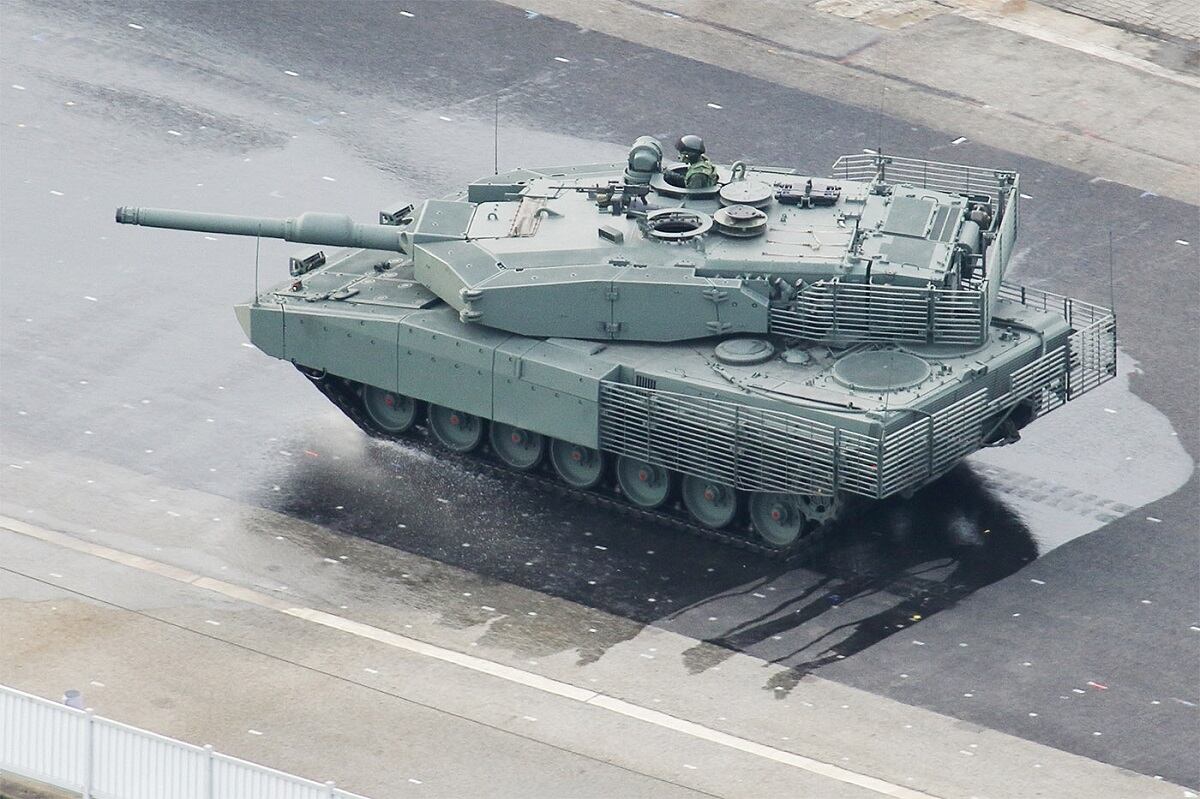WARSAW, Poland — Poland’s new desire to join the European Main Battle Tank project, an initiative spearheaded by the Franco-German tandem, is part of a larger regional trend under which numerous Eastern European allies are pursuing plans to acquire new vehicles and replace their Soviet-designed tracked and wheeled rides.
Following an Aug. 16 meeting between Polish Defense Minister Mariusz Blaszczak and his German counterpart, Annegret Kramp-Karrenbauer, the Polish leader said the country wants to join the European tank program, adding it could “be a good solution for the Polish defense industry” and “beneficial if this initiative were to be accelerated and it became a PESCO project" strengthened by European Union funding.
The Permanent Structured Cooperation initiative, or PESCO, is a framework established by the EU in 2017 to allow its member states to engage in joint projects related to military cooperation. In March 2018, the Council of the European Union adopted an initial list of projects for development.
An updated version of the list released in November 2018 includes, among others, a project to build a prototype European armored infantry fighting vehicle that could serve as the basis of an amphibious assault vehicle and a light armored vehicle. The participating member states include Italy, Greece and Slovakia.
Germany and France, alongside other countries, are already collaborating to develop a European medium-altitude, long-endurance remotely piloted aircraft under the Eurodrone project.
Local observers say that while the Polish land forces operate about 247 Leopard 2A4 and 2A5 tanks acquired from the German military, the country’s armed forces urgently need to procure new gear to replace its Soviet-designed tanks.
RELATED

“The armored and mechanized battalions have about 500 T-72 and PT-91 tanks at their disposal, but a large share [of those tanks] is not operational and should be decommissioned as soon as possible," an analyst at a state-run, Warsaw-based think tank told Defense News. “To make another attempt at modernizing them would be a waste of very limited resources.”
Poland’s defense industry had developed a tank prototype, the Anders, but it became clear to Polish officials that it made more sense to join a European program, the analyst said.
Czech, Bulgarian tenders underway
Poland’s plan to strengthen its land forces and replace Soviet-built tanks with Western-made gear is part of a regional trend. A number of Eastern European allies have accelerated similar efforts following Russia’s annexation of Ukraine’s Crimean Peninsula in 2014.
The rise in military expenditure across the region has also triggered a surge in armored vehicle programs. In the Czech Republic, the Defence Ministry issued a request for proposals to replace the country’s outdated BVP-2 platforms with new infantry fighting vehicles, according to an Aug. 6 statement.
The four bids for the contract, under which 210 of the vehicles are to be supplied for an estimated 50 billion korunas (U.S. $2 billion), include the Ascod, offered by General Dynamics European Land Systems; BAE Systems’ CV90; Rheinmetall’s Lynx; and Puma, made by Germany’s Krauss-Maffei Wegmann and Rheinmetall.
“Czech political parties agreed to increase defense spending to 1.4 percent of gross domestic product by 2020 and 2 percent of GDP by 2024," Jakub Janda, the executive director of the Prague-based European Values think tank, told Defense News. “Both the government and the democratic opposition parties agree on this. Large tenders are currently being processed, but the issue of a lack of ... managerial staff at the Defence Ministry is causing the tenders to run very slowly.”
Meanwhile, Bulgaria’s Ministry of Defence is seeking to purchase 150 armored vehicles for three battalions of the country’s land force.
The bidders for the contract, which is estimated to be worth about 1.5 billion leva (U.S. $851 million), are expected to include Finland’s Patria; France’s Nexter Group; Swiss-based General Dynamics Land Systems–MOWAG; and Germany’s ARTEC, which is a joint venture involving Krauss-Maffei Wegmann and Rheinmetall. Offers are to be evaluated by Dec. 20, the ministry said in a statement.
Jaroslaw Adamowski is the Poland correspondent for Defense News.








